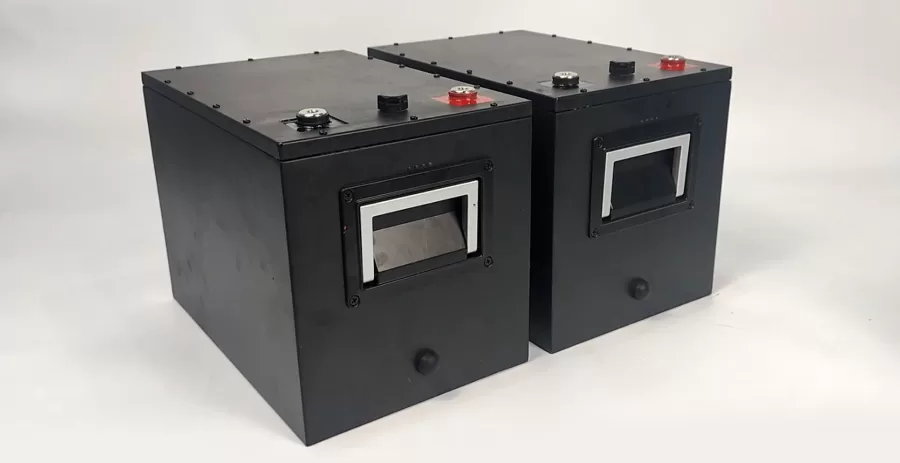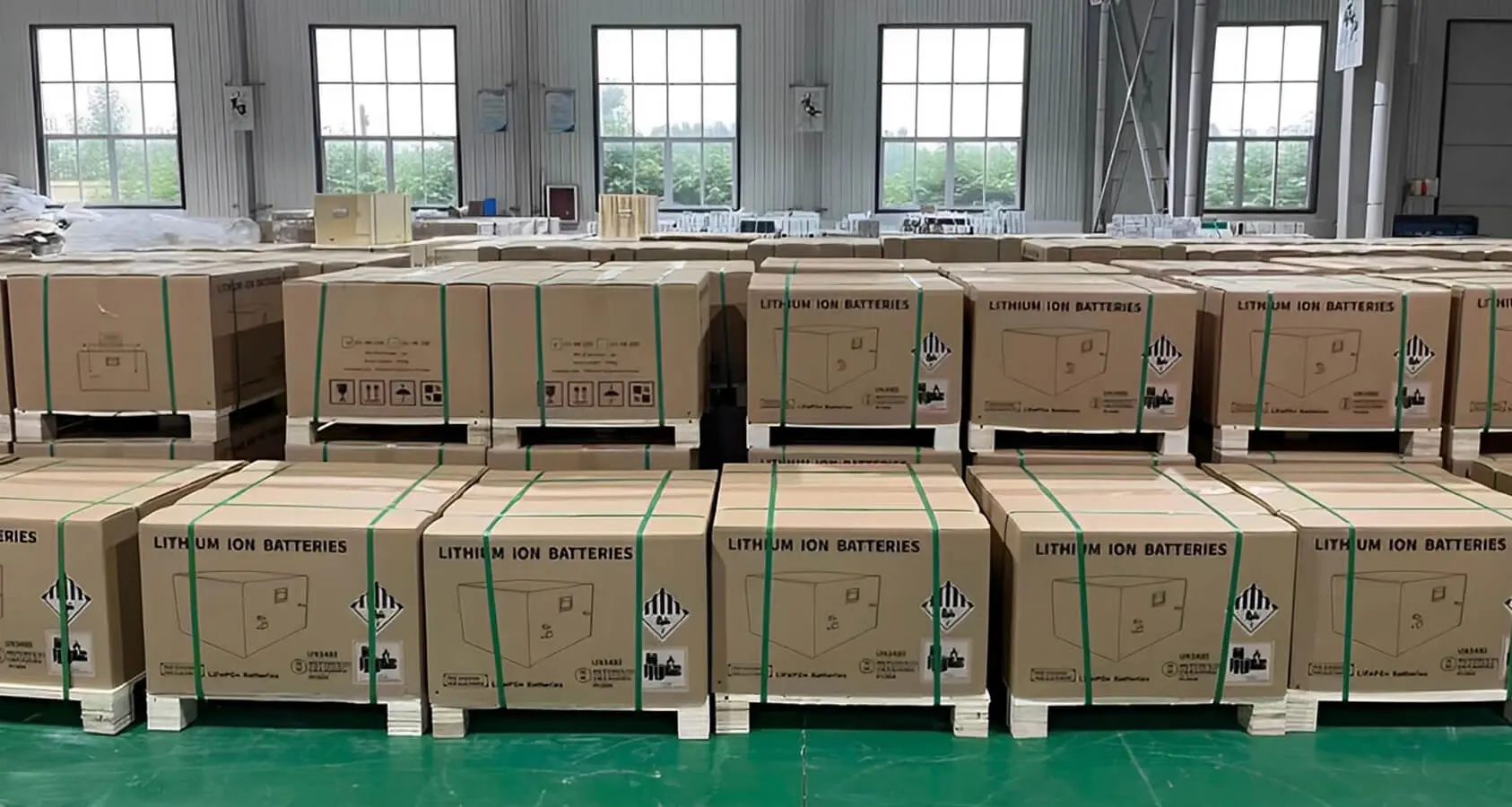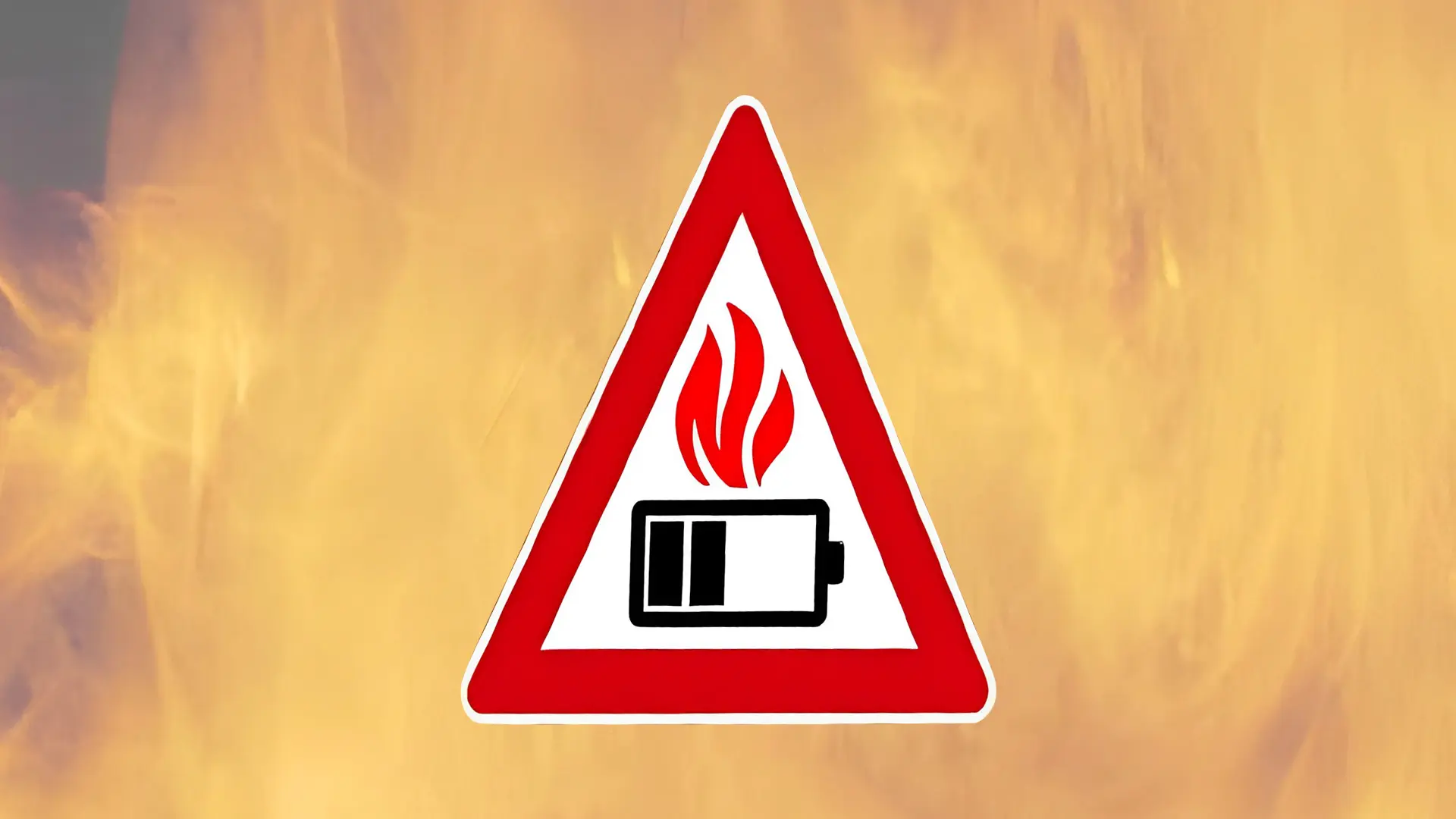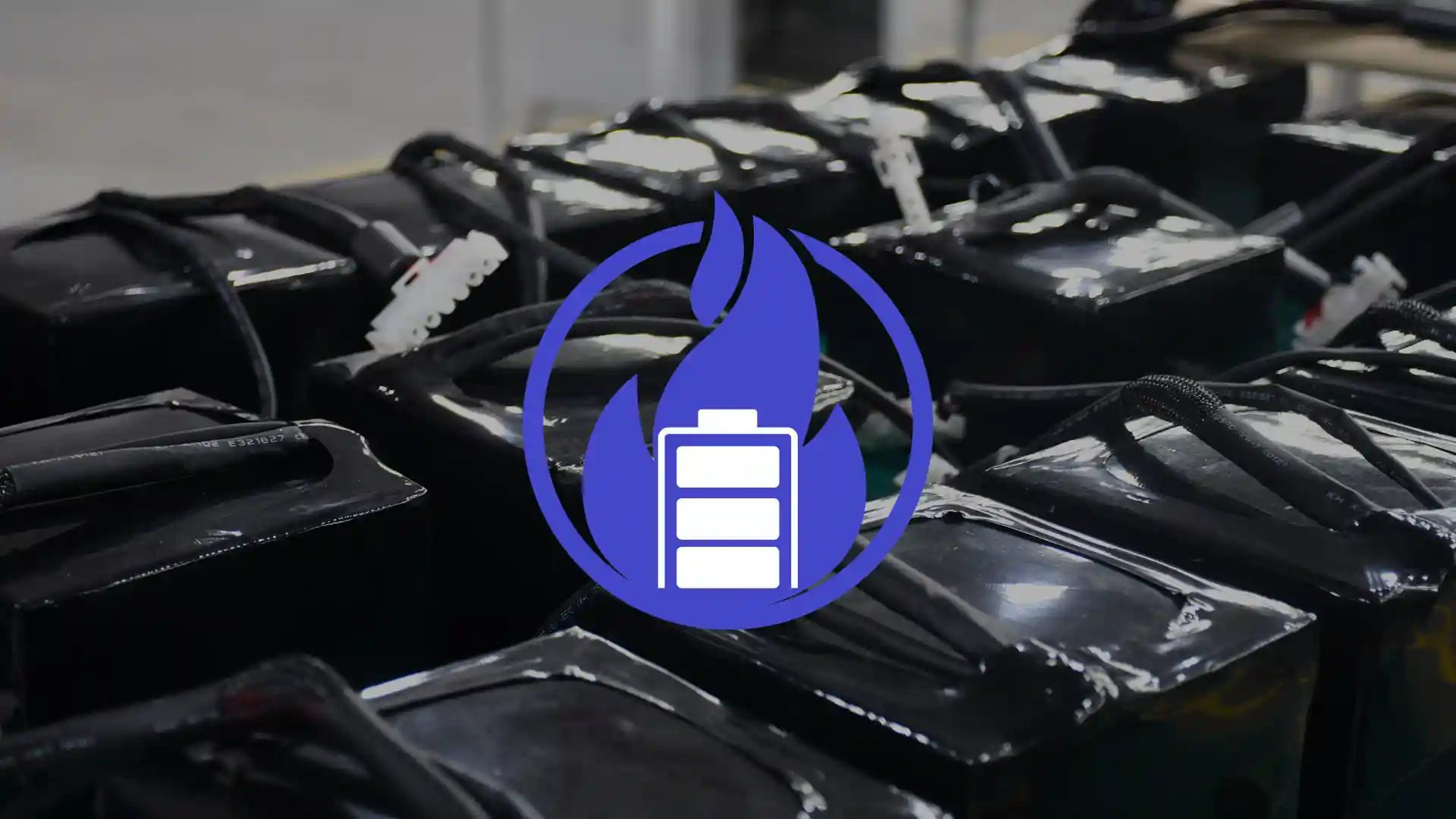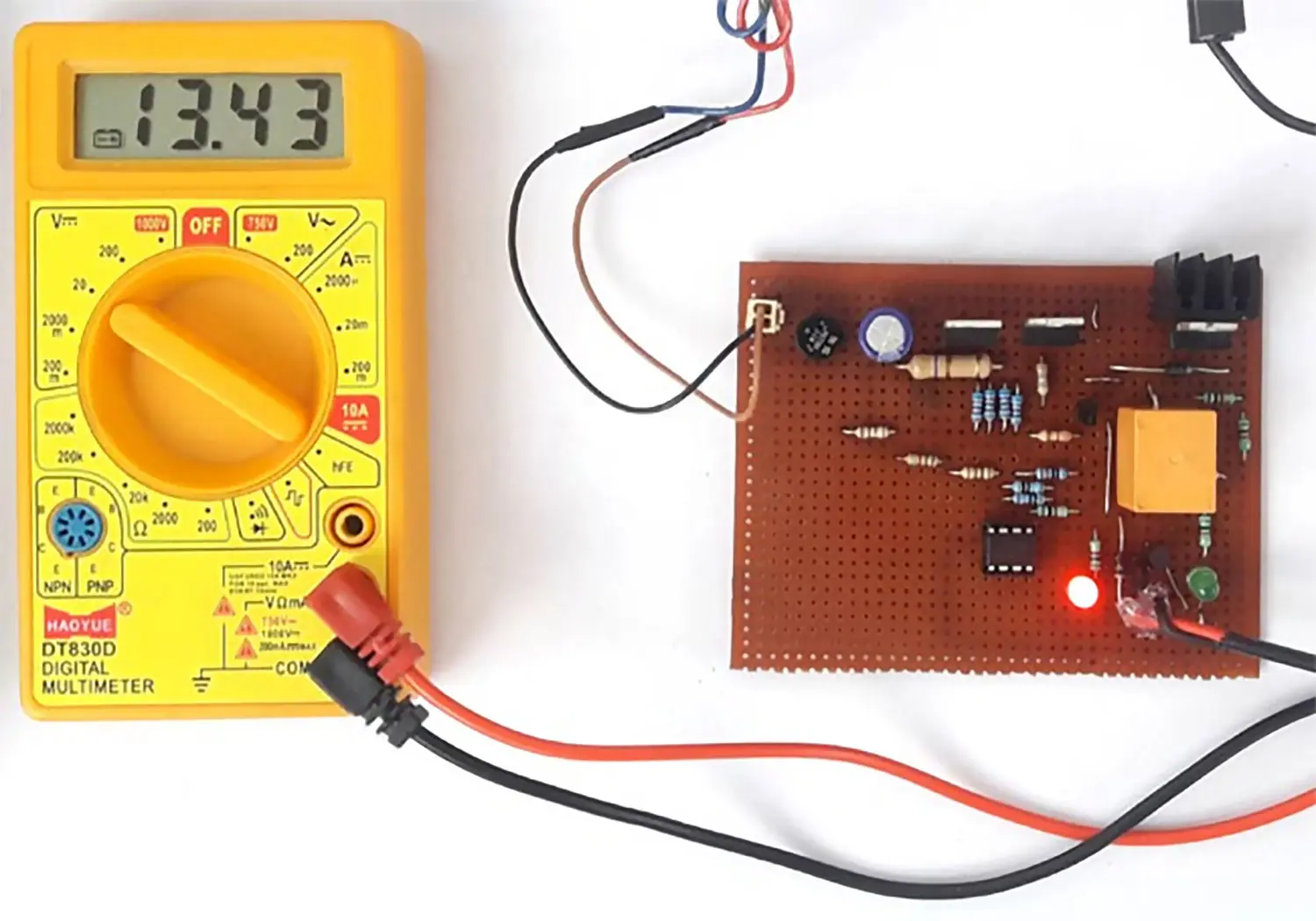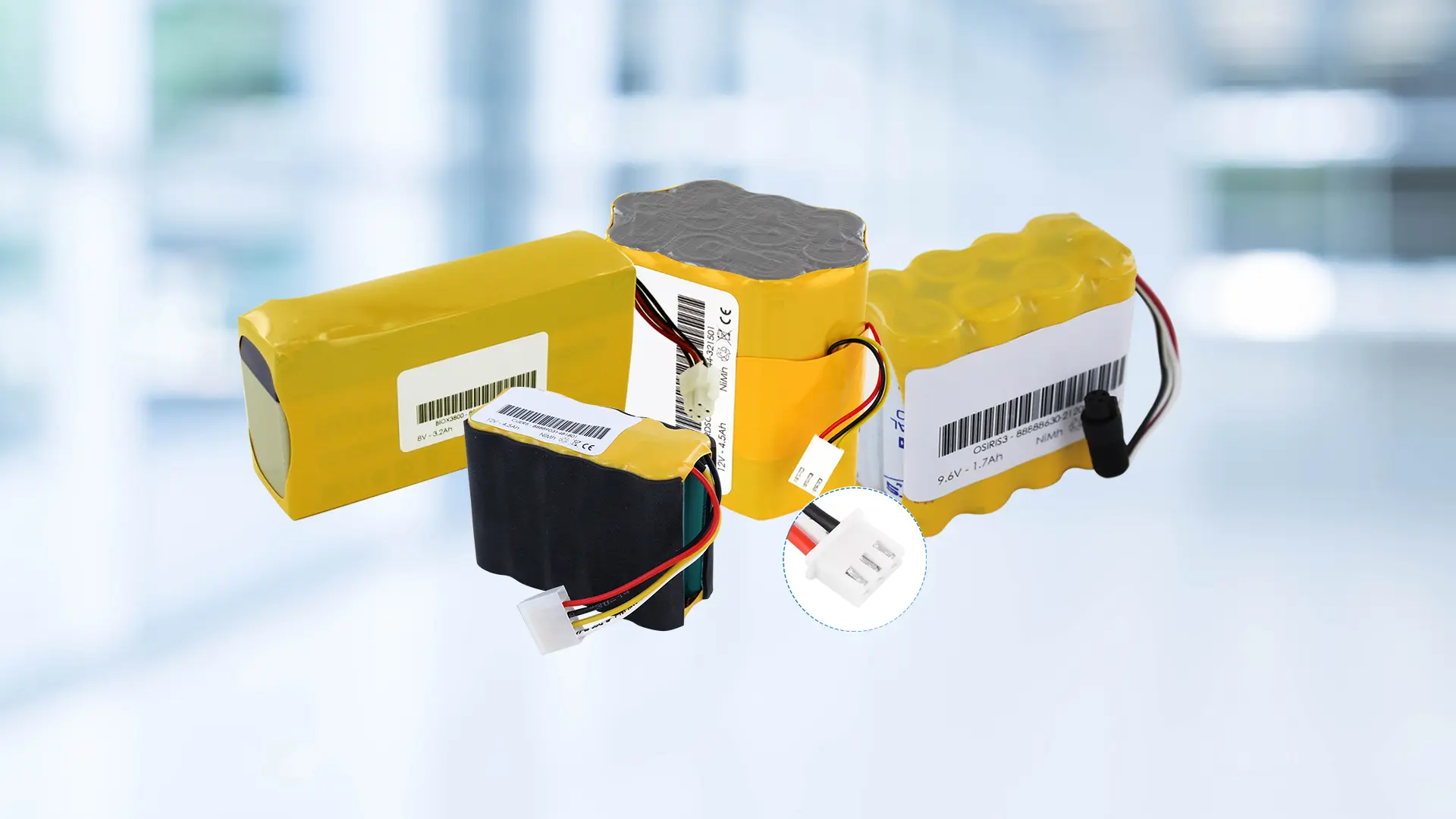Depending on how much water it touches and for how long, submerging a lithium-ion battery in water may cause a short circuit, overheating, fire, or even an explosion. In general, most lithium batteries can withstand some rainwater or accidental splashes. Lithium-ion batteries are utilized for applications that request different waterproof & dustproof levels.
So, what will happen if the lithium ion battery is submerged in water? The following descriptions about lithium battery safety with water contact support you to know more.
Exploring Lithium Battery Reaction with Water
Due to the high reactivity of lithium with water molecules, water triggers dangerous reactions. When water infiltrates a lithium battery, it sets off a series of harmful reactions, potentially leading to heat generation, hydrogen release, and potential fire hazards.
Hydrogen Reaction
The presence of water triggers the decomposition of lithium compounds within the battery, resulting in hydrogen gas formation. When this gas combines with air, it forms an explosive mixture. If it is ignited or triggered, the risk of fire or explosion will be bigger.
Heat Reaction
Water ingress initiates exothermic reactions within the battery, causing a noticeable increase in temperature. It raises the heat, potentially leading to battery fires or even explosions.
Fire and Thermal Hazards
The heat increasing, the presence of flammable gases (such as hydrogen), and the potential ignition of combustible battery components may lead to fires.
Can Lithium Batteries Get Wet?
In short, yes, under certain conditions. This depends on the quality of the battery and the design of the manufacturer. CMB batteries are fully sealed with protection levels ranging from IP65 to IP68, making them water-resistant and splash-proof, maintaining optimal performance even in slightly humid environments. However, prolonged exposure to high humidity can lead to water infiltration into the battery, causing irreversible damage.
When dealing with other types of lithium-ion batteries, it’s crucial to understand the manufacturer’s specifications regarding their water contact. While most lithium batteries are sealed, not all seals are equal. Depending on the manufacturer, the amount and duration of water exposure can significantly affect the battery’s health. In general, most lithium batteries can withstand some rainwater or accidental splashes, but following additional precautions against water contact as advised by the battery manufacturer can be beneficial.
The lithium ion battery submerged in water will behave differently. If your battery’s air tightness fails, water entry into lithium batteries can reduce performance or short-circuit.
What Happens When Lithium Batteries Get Wet?
When a battery comes into contact with water, internal acids leak, damaging the battery. Understanding your battery type and how best to prevent water ingress is crucial. Batteries might dry out, leading to reduced performance. However, if a battery gets wet, it can still operate since water conducts electricity. The more water inside the battery, the easier the current flows between terminals. This means that as long as there’s water inside, it can work when connected to a circuit or device with a current.
However, this benefits some batteries more than others; for some, it can cause significant damage. Batteries are not waterproof. If they get wet, they short-circuit and may explode. That’s why it’s always advised not to attempt using batteries submerged in water.
Will a Lithium Ion Battery Explode in Water?
Whether a lithium ion battery submerged in water will explode depends on several factors. Generally, water ingress into a lithium battery may cause material failure leading to a short circuit, but it doesn’t necessarily result in an explosion. However, poor-quality lithium batteries, such as those with inadequate seals or low-quality electrolytes, may increase the risk of explosion after water ingress. Additionally, impurities or structural issues inside the battery may also cause a short circuit, increasing the likelihood of an explosion.
How Does Exposure to Saltwater Affect Lithium Batteries?
Not all water affects batteries in the same way. Batteries exposed to saltwater typically suffer more damage and performance degradation compared to those in freshwater.
The presence of dissolved salts in water not only corrodes battery components and cable assembly, but saltwater is also more conductive than freshwater. This means that when saltwater contacts battery terminals, the battery may unintentionally start discharging.
Can I Charge Wet Lithium Batteries?
While keeping batteries dry is ideal, if they encounter small amounts of water or moderate humidity, charging should not be a problem. However, if a battery is submerged or soaked in water, attempting to charge it should be avoided. If you suspect water damage to your lithium battery, do not attempt to charge it. Instead, dispose of it safely.
What Preventive Measures Can Protect Lithium Batteries from Moisture?
While some water won’t harm your battery, taking basic precautions to keep batteries dry can minimize water damage issues significantly. Waterproofing batteries is a key process in protecting them from potential water damage, especially in humid environments.
- Encapsulation and Coating: Using waterproof materials to encapsulate or coat battery components can provide a protective layer, preventing water infiltration.
- Waterproof Housing Design: Manufacturers often design battery housings with waterproof features to protect internal components.
- Sealants and Adhesives: Using sealants or ethylene acrylic acid adhesives at the seams, joints, or openings of battery housings can enhance waterproofing.
- Protective Wrapping: Using additional protective packaging or shrink wrapping around batteries can provide an extra waterproof layer.
- IP Ratings: Using batteries with higher IP ratings (such as IP67 or IP68) provides sufficient moisture protection.
- Regular Maintenance: Routine inspections and maintenance are crucial to ensuring the effectiveness of waterproofing measures.
These steps might sound simple, but they can greatly help in keeping batteries dry, especially during heavy rains or other extreme precipitation when using boats, ships, or other off-grid vehicles.
What are IP65/IP68 Ratings?
To ensure CMB batteries remain unaffected by natural elements, they undergo rigorous testing protocols. These tests expose batteries to evaluate their resistance to water exposure and external particles.
IP ratings classify the quality of casings around electronic equipment and other devices, indicating their effectiveness in sealing out foreign objects and moisture. The IP rating consists of two digits: the first digit represents intrusion protection against solids (ranging from 0-6), and the second digit represents moisture protection (ranging from 0-9).
Our batteries can be customized to meet specific IP ratings as per customer requirements. For example, an IP65 rating indicates our batteries are “dust-tight” (level 6) and fully protected against water jets from any direction at low pressure (6.3 mm nozzle). An IP65 rating means our batteries are waterproof, safe, and well-protected even in moderately humid conditions or with minimal water exposure.
| IP Rating | Dust Protection | Water Protection | Typical Use Cases |
| IP54 | Dust-protected | Protected from water splashes from any direction | Portable electronics exposed to light rain or dusty environments (e.g., some portable speakers) |
| IP65 | Dust-tight | Protected from low-pressure water jets (e.g., garden hose on gentle setting) from any direction | Power tools, outdoor cameras, marine electronics |
| IP66 | Dust-tight | Protected from powerful water jets (e.g., heavy rain or strong hose jets) from any direction | Industrial equipment exposed to washdown environments |
| IP67 | Dust-tight | Protected against temporary immersion in water (up to 1 meter for 30 minutes) | Action cameras, some rugged smartphones |
| IP68 | Dust-tight | Protected against continuous immersion in water (depth and duration varies by manufacturer) | Underwater drones, marine batteries |
IP67 Battery Pack Waterproof and Dustproof Design
How to Waterproof Batteries?
CM Batteries can provide custom waterproof battery packs that can work in water. These batteries can be protected by tightly wrapping them or applying a waterproof coating such as waterproof polyurethane, silicone, or rubberized material to secure dry box battery cases. These protective measures enhance the safety and longevity of lithium batteries, ensuring that critical components remain accessible while safeguarding against water damage.
For instance, ice fishermen rely on battery boxes to maintain their batteries’ warmth and dryness, especially during transportation in harsh conditions. These sealed containers come with ports for easy access to power and charging without needing to remove the batteries. This setup assures anglers of worry-free battery performance even in extreme environments.
Lithium batteries from CM Batteries are designed to be fully sealed, minimizing the risk of water-related damage or issues. With proper care and maintenance, these batteries are highly reliable and safe for marine use, offering superior capacity, quick charging, and robust performance in various conditions compared to traditional lead-acid batteries.
CMB offers waterproof batteries with customizable IP ratings, providing unparalleled protection and reliability for marine and harsh environment use. Contact us for worry-free battery solutions.

